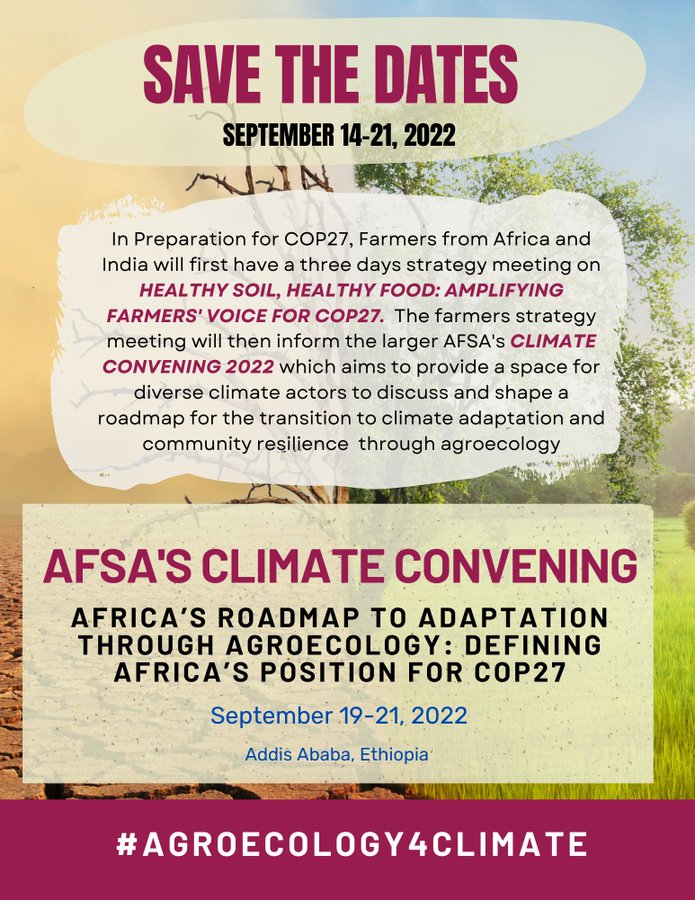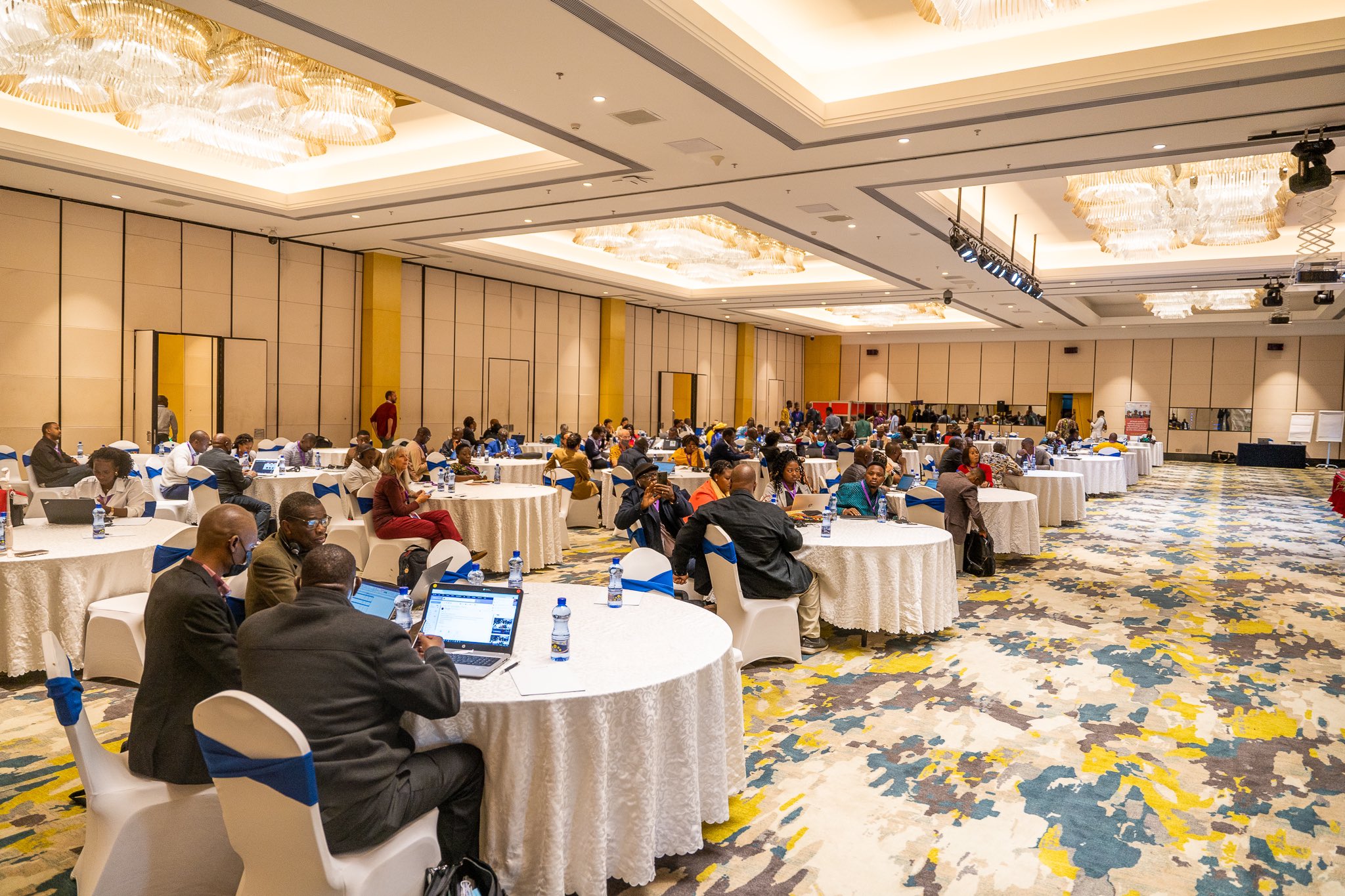AFRICA’S ROADMAP TO ADAPTATION THROUGH AGROECOLOGY and DEFINING AFRICA’S POSITION FOR COP27.
In 2011, AFSA first appeared at COP17, the UN Climate Change Conference held in South Africa. As a civil society collaboration of 40 member networks of farmers, pastoralists, Indigenous people, citizens, and environmentalists from 50 African countries, the AFSA is a powerful uniting force that bolsters an agenda centered on small farmer-led agriculture. It is determined to amplify agroecological practices and resist initiatives that seek to privilege agribusiness and techno-fixes over justice and sustainability.
Focusing on areas such as land, seed sovereignty, and pastoralism, ASFA has published 33 case studies of agroecological practices across Africa, producing a “Know Agroecology” media guide for journalists, communicators, and practitioners. It has also amplified its ambitious “Agroecology for Climate Resilience” campaign to demonstrate that only agroecological practices will cool the planet, feed the world, and regenerate ecosystems. This project aims to reach 7 million African citizens and make agroecology a key climate mitigation and adaptation strategy in the official climate plans of 10 African countries.
Related:
ECDPM (2022) Supporting adaptation in African agriculture a policy shift since the EU green deal? # 21 p.This paper questions whether the Green Deal and Global Europe, the EU’s instrument for neighbourhood,
development and international cooperation, have led to increased political support for climate change adaptation
for agriculture to the benefit of smallholder farmers in sub-Saharan Africa. Or is the EU repackaging what already
existed?
Answering this complex question means looking at potential shifts in four areas related to EU development,
cooperation and finance: (1) narrative as expressed in recent policies and strategies towards Africa and the new
programming documents; (2) financing modalities and instruments; (3) partnerships with EU members states, the
private sector and development finance institutes; and, (4) implementation of projects in the period 2021-2022.
This paper ends with ten recommendations on how
to increase the much-needed support for adaptation in Africa’s agricultural sector and facilitate a change of direction
from finance, policy and practical perspective, ahead of the mid-term review of EU projects in 2024.
29/09 Dialogue 3: Agroecology as a response to agri-input scarcity by FAO and the Biovision Foundation in support of the Coalition for food systems transformation through Agroecology



No comments:
Post a Comment